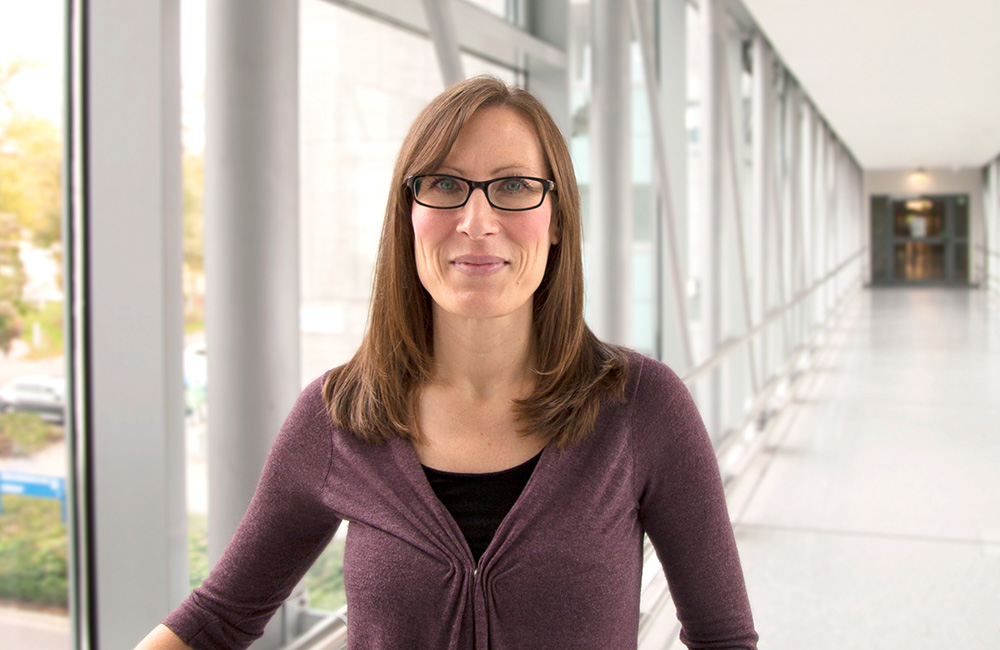New professorship for Circuit Neuroscience together with the Leibniz Institute of Neurobiology
Strengthening innovative brain research and interdisciplinary collaboration between Magdeburg University Medical Center and the Leibniz Institute of Neurobiology
Prof. Dr. Janelle Pakan researches the sensory and motor systems in the brain and investigates what happens when these do not function properly, particularly in connection with neurodegenerative diseases. The neuroscientist has now taken up the professorship for Circuit Neuroscience at the Faculty of Medicine at Otto von Guericke University Magdeburg. The 42-year-old was appointed jointly by the University of Magdeburg and the Leibniz Institute of Neurobiology in Magdeburg according to the so-called "Jülich model". This type of appointment is particularly interesting for people who want to devote themselves intensively to research. At the same time, it promotes the exchange of knowledge between the institutions and strengthens the neuroscientific research profile of the location.

Photo: Neuroscientist Prof. Dr. Janelle Pakan researches the circuits of the brain. Photographer: University Medical Center Magdeburg
Prof. Pakan's focus is on researching the complex neuronal circuits that control our thought processes. "The aim is to understand how our brain integrates sensory and motor stimuli during learning and which disorders occur in neurodegenerative diseases such as Parkinson's. This research helps to gain a better understanding of how the brain and behavior interact in the dynamic complexity of the 'real world'," she explains.
Born in Canada, she has over 18 years of experience in the fields of neuroanatomy, systems neurology and translational science. She has worked at various renowned universities in Canada, Ireland and the United Kingdom. She currently heads the research group "Neuronal Circuits and Network Dynamics" at the Leibniz Institute of Neurobiology. Innovative techniques are used for the research, including two-photon microscopy, neuroanatomical and imaging methods as well as translational disease models. This enables detailed insights into living cells and tissue and allows various brain structures to be examined more closely.
With her research, the neurobiologist wants to further strengthen the neuroscience network in Magdeburg. "I am looking forward to making a contribution that is not only scientifically significant, but also has practical applications for people," says Prof. Pakan. The findings from her research are not only crucial for understanding basic brain functions, but also for developing more efficient assistance technologies and promoting cognitive vitality in an ageing society.
About the person:
Prof. Janelle Pakan, born 1981 in Canada, studied psychology and biology at the University of Alberta, where she received her PhD in neuroscience in 2009. She continued her research as an NSERC Fellow at the Brain Research Centre at the University of British Columbia in Canada, followed by a period as an NSERC/IRCSET Fellow at the BioSciences Institute at University College Cork in Ireland from 2010 to 2013. From 2014 to 2017, she was a Marie Skłodowska-Curie Intra-European Fellow at the Centre for Integrative Physiology at the University of Edinburgh in the UK. Since 2017, she has headed a research group at the Institute for Cognitive Neurology and Dementia Research at Otto von Guericke University Magdeburg (IKND), is a member and director of the Center for Behavioral Brain Sciences (CBBS) at the University of Magdeburg and also works at the German Center for Neurodegenerative Diseases (DZNE) in Magdeburg. As a newly appointed professor, she now continues to head her research group at the Leibniz Institute of Neurobiology.
Jülich model
According to §37 of the Higher Education Act of the state of Saxony-Anhalt, universities and non-university research institutions can agree on joint appointment procedures to promote cooperation in research and teaching. In the "Jülich model" (also known as the leave of absence model), the holder of the appointment is simultaneously appointed to the university and granted a leave of absence in order to immediately take on a management role at the non-university institution. The aim is to effectively network university and non-university research in order to develop excellence, promote young researchers in a targeted manner and establish competence networks.






